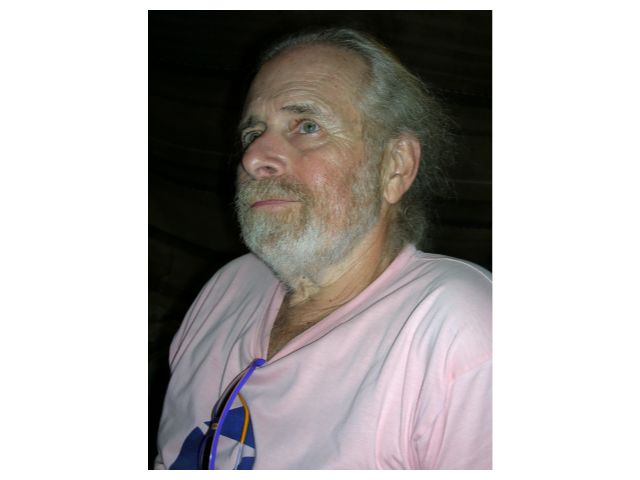Slowly, the truth has emerged about the housing bubble bursting, but it has not produced headlines because of distraction or media cowardice. Ask yourself this: What happened to slow home buying and lower home prices? Something was affecting the public's ability to keep paying high prices for new homes, despite pretty low interest rates and new types of seductive mortgages. Wage stagnation and higher living costs have finally put a serious squeeze on people, at least the ones with jobs.
Understand this about the housing bubble: The government and the financial industry created ways to make housing artificially affordable. The housing market was inflated with cheap money, only to be popped by economic reality, dumping many people into financial disaster.
Reading about the economy and economics is probably not your favorite activity, but you need to read a taste of economic reality from various sources, that the mainstream media are ignoring - pay attention to what is said about consumer spending and housing:
On FXStreet.com the headline was "Is the US in the verge of a recession?" He'ctor Bove had this to say: "Let me tell you that even if Consumer Confidence edged up last month, this is not going to change the fact that the US is going to have a hard landing. If you are skeptic about this the only thing you need to see is the chart of the US Yields and see that this market (the most reliable and precise of all) is already pricing in a recession in the US, and today nearly 12% of the analysts surveyed by Bloomberg are calling for rate cut as early as next year."
Reuters reported that "Chief financial officers of U.S. corporations are increasingly pessimistic about their business and the overall economy, and put the chance of a recession within the next year at 33 percent. ...The level of pessimism about the U.S. economy is the highest in five years, the survey by Duke University and CFO Magazine found. ...The proportion of executives saying they are more optimistic about the economy -- 19.8 percent -- is down from 24 percent in the previous survey and down from 42 percent six months ago." Here is what is most important: "Sliding consumer demand tops their list of worries." This is exactly the time when some progressive political leaders could be asking for and threatening a slowdown in discretionary spending by consumers in order to get some political concessions from congress and President Bush.
In England, the Telegraph story headline was "Oil prices tumble over fears of US recession." Edmund Conway, economics editor, said: "Oil prices have dropped to the lowest level in six months, as markets' concerns about geopolitical instability are replaced with worries about an impending US-led economic slowdown. ...Hedge funds and oil traders are selling their crude holdings because of fears that the US economy could slump next year, dragged down by the stalling housing market."
Clive Crook, a senior editor of Atlantic Monthly and a columnist for National Journal, said: "...a slowdown of one kind or another is coming. That's because of what's happening in the housing market. House prices all across the country are finally topping out. In some places, they're falling. Some economists talk about a housing bubble, like the dotcom share-price bubble of the late '90s. If that's right, and the bubble goes pop instead of gently deflating, a full-fledged recession is likely. Many more people invest in houses than they ever did in the dotcoms. So people will have a heck of a lot more to complain about. ... Between now and 2008, [the economy] might just tip over."
David Rosenberg, chief North America economist at Merrill Lynch & Co., forecasts a 45 percent risk of a U.S. recession next year.
The chief investment strategist at stockbrokers Charles Schwab & Co. and a well-known New York economic consultant, Nouriel Roubini put the odds of a recession at 50-50.
Economist Beata Caranci at the Toronto-Dominion Bank, believe there's a one-in-four chance of a recession.
In England the Guardian reviewed serious analyses of the U.S. situation. They concluded that the risk of a U.S. recession within 12 months was 31%.
Morgan Stanley's New York-based chief economist, Stephen Roach, said the ''odds of a U.S.-led global recession are rising in the 2007-08 period and cannot be taken lightly.''
HSBC economist John Butler said: "We are concerned about the possibility of recession in the US."
In Dubai a news story said: "Economists and currency experts are warning of a possibility of outright recession in the US economy." Addressing a group of corporate customers in Dubai, David Bloom, Global Head, Market Strategy - HSBC Global Markets ... said that there is a growing risk of outright recession in the US economy. "The US has become a 'push-me, pull-you' economy: companies may be profitable but households, who have been the key drivers of growth, are in trouble. A cocktail of higher energy prices, tighter monetary policy, an end to tax cuts and, more recently, a housing market that appears to be in free-fall threatens to poison the upswing," Bloom said. He believes that recent economic growth was built on the most fragile of foundations. Loose monetary and fiscal policies led to unwarranted gains in the housing market which are now reversing. "The US is now facing an economic adjustment, with feast followed by famine. We are cutting our 2007 US growth forecast to just 1.9 per cent and issuing a 'recession risk' warning" Bloom said.
(Note: You can view every article as one long page if you sign up as an Advocate Member, or higher).





